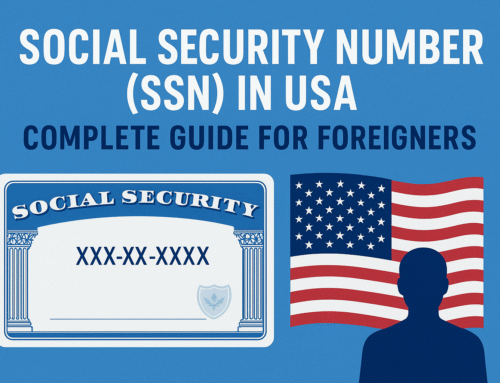Buying Property in the USA as a Foreign Buyer: Complete Guide for First-Time Investors
Buying property in the United States is a dream for many international buyers. Whether you are looking for a vacation home, a rental investment, or a permanent residence, the USA offers some of the world’s most stable and attractive real estate markets. However, for foreign nationals purchasing property for the first time, the process may seem complicated. The good news is that foreigners are allowed to buy property in the USA without restrictions, and with the right knowledge, you can make a smooth investment.
In this guide, we’ll cover everything you need to know about buying property in the USA as a non-resident, including legal requirements, financing options, best locations, tax rules, and practical tips to ensure your first purchase is successful.
Can Foreigners Buy Property in the USA?
Yes. The United States has no citizenship or residency requirements for buying property. Foreign nationals can purchase real estate in all 50 states, whether residential, commercial, or land. Ownership rights are almost identical to those of U.S. citizens.
What makes the U.S. market especially attractive is its transparency, legal protections, and strong rental demand. Foreigners own billions of dollars worth of real estate across the country, particularly in cities like New York, Miami, Los Angeles, and Houston.
Benefits of Buying Property in the USA as a Foreigner
- Secure Investment – The U.S. real estate market is one of the most stable globally. Property values tend to rise steadily in major cities and growing states.
- No Restrictions – Foreign buyers face no major ownership restrictions. You can buy under your own name, jointly with others, or through a company or trust.
- Rental Income Opportunities – Many investors rent their properties to cover expenses or generate profits, especially in tourist-heavy cities.
- Diverse Property Choices – From luxury condos in Manhattan to suburban homes in Texas, the U.S. offers a wide range of properties to fit different budgets.
- Legal Protections – U.S. property laws strongly protect ownership rights, which is not always the case in other countries.
Step-by-Step Guide: How Foreigners Can Buy Property in the USA
1. Decide Your Investment Goal
Before you start searching, decide whether you want:
- A vacation home for personal use
- A rental property for income
- A long-term investment to hold and sell later
- A business or commercial property
Your purpose will guide the location, budget, and type of property you choose.
2. Choose the Right Location
The U.S. is a large country, and property markets vary widely. Here are some popular options for foreign buyers:
- New York City – High demand, international prestige, luxury condos.
- Miami & Florida – Popular with Latin American and European buyers, strong rental market.
- Los Angeles & California – Luxury lifestyle, strong appreciation, but higher prices.
- Texas (Houston, Dallas, Austin) – Affordable, growing economy, rising property values.
- Chicago – Affordable urban properties with strong rental demand.
When choosing, consider rental yields, property taxes, and long-term value.
3. Work With a Real Estate Agent Experienced in International Buyers
An experienced agent can help you:
- Find properties within your budget
- Handle negotiations
- Explain legal paperwork
- Connect you with lawyers, inspectors, and mortgage brokers
Since you’re buying for the first time, choosing an agent who understands foreign investment laws is crucial.
4. Understand the Legal Process
The process of buying property in the USA usually involves:
- Making an offer through your agent
- Signing a purchase agreement
- Hiring a real estate attorney (in some states, it’s required)
- Performing inspections and appraisals
- Closing the deal by paying the agreed amount
Foreign buyers do not need a special visa to buy property. However, owning property does not automatically grant residency or a green card.
5. Financing Options for Foreign Buyers
Many first-time foreign buyers assume they must pay in cash, but financing is possible. Some U.S. banks and private lenders offer mortgages for non-residents, though requirements are stricter than for U.S. citizens.
Typical requirements include:
- A minimum down payment of 30–50%
- Proof of income and assets from your home country
- A valid visa or passport
- Higher interest rates than local borrowers
Some buyers choose to pay in cash to speed up the process and avoid high interest.
6. Setting Up a U.S. Bank Account and ITIN
To purchase property and pay taxes, you may need an Individual Taxpayer Identification Number (ITIN). This is issued by the IRS for foreigners who don’t qualify for a Social Security Number.
Opening a U.S. bank account also makes it easier to transfer funds and pay expenses like property taxes, utilities, and mortgage payments.
7. Taxes for Foreign Property Owners in the USA
Foreign buyers must be aware of U.S. tax obligations:
Property Taxes – Paid annually based on local rates (0.3% to 2.5% of property value depending on state).
Rental Income Tax – If you rent out your property, rental income is taxable. The IRS withholds 30% unless you file to be taxed on net income.
Capital Gains Tax – If you sell your property at a profit, you pay tax on the gain (generally 15–20% for long-term holdings).
FIRPTA (Foreign Investment in Real Property Tax Act) – When a foreign owner sells, 10–15% of the sale price is withheld for taxes.
Hiring a tax advisor who understands international buyers is highly recommended.
8. Property Management
If you don’t live in the U.S., managing your property from abroad can be challenging. Many foreign owners hire property management companies that handle tenants, rent collection, repairs, and legal compliance.
This ensures your investment remains profitable and hassle-free, especially for rental properties.
Tips for First-Time Foreign Buyers
- Start Small – Consider a condo or single-family home before investing in larger commercial properties.
- Understand Ongoing Costs – Besides the purchase price, budget for insurance, taxes, utilities, and management fees.
- Check Visa Rules – Owning property does not grant residency, but certain visas (like EB-5 investor visas) may be an option if you invest in businesses.
- Be Aware of Exchange Rates – Fluctuations in your home currency vs. the U.S. dollar can affect your budget.
- Do a Title Search – Ensure the property has no unpaid debts or ownership disputes.
Best States for Foreigners to Buy Property in the USA
While foreigners can buy anywhere, these states are especially attractive:
- Florida – Popular for vacation homes, affordable taxes, strong rental market.
- California – Expensive but offers long-term appreciation and international appeal.
- Texas – Lower property prices, business-friendly environment, high demand.
- New York – Strong rental demand and prestigious addresses, but higher costs.
- Nevada – Especially Las Vegas, affordable properties and growing demand.
Common Mistakes Foreign Buyers Should Avoid
- Not hiring a qualified real estate lawyer
- Ignoring tax obligations
- Overlooking property management needs
- Relying only on online listings without local inspections
- Forgetting to plan for ongoing expenses
Conclusion
For foreign nationals, buying property in the USA is not only possible but also a smart investment opportunity. With no citizenship restrictions, a stable market, and diverse options, the U.S. continues to attract global buyers.
The key to success is understanding the legal process, financing options, and tax rules. By working with experienced professionals and planning carefully, first-time foreign buyers can secure valuable real estate in one of the world’s most dynamic markets.
Whether your goal is to enjoy a holiday home, earn rental income, or hold long-term investments, the United States offers countless opportunities.
Start with research, consult with experts, and take the first step toward owning your dream property in the USA.
Read Also:






Leave A Comment